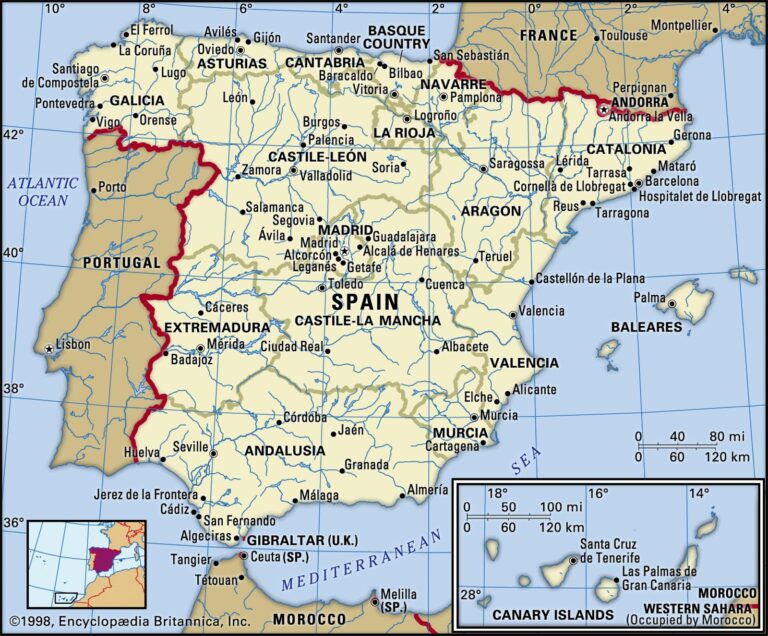The International Monetary Fund (IMF) has released its latest Article IV Consultation report on Spain, providing a comprehensive assessment of the country’s economic outlook and policy framework as it navigates the challenges of 2025. The press release and accompanying staff report offer critical insights into Spain’s fiscal health, growth prospects, and structural reforms amid a complex global environment. With inflation pressures easing but lingering uncertainties on the horizon, the IMF underscores key policy recommendations aimed at sustaining recovery, enhancing competitiveness, and ensuring fiscal sustainability. This article delves into the main findings of the IMF’s evaluation, highlighting implications for Spain’s economic trajectory in the coming years.
Spain’s Economic Outlook 2025 Focuses on Recovery and Stability
Spain’s economic trajectory for 2025 is poised toward a cautious yet optimistic recovery, anchored by sound fiscal policies and enhanced macroeconomic stability. The International Monetary Fund (IMF) highlights that while external uncertainties persist, especially in global energy markets, Spain’s domestic consumption and investment outlook remain positive. Key structural reforms aimed at increasing labor market flexibility and productivity are expected to bolster growth, while inflation rates are projected to moderate, allowing for a more predictable economic environment.
Noteworthy elements underpinning this outlook include:
- Fiscal consolidation: targeted efforts to reduce the public deficit without stifling growth;
- Monetary policy alignment: adapting to the European Central Bank’s stance to keep inflation in check;
- Investment in green technologies: fostering sustainable development and job creation;
- Emphasis on digital transformation: promoting innovation across industries.
| Economic Indicator | 2024 Projection | 2025 Forecast |
|---|---|---|
| GDP Growth | 2.1% | 2.5% |
| Inflation Rate | 3.5% | 2.2% |
| Unemployment Rate | 12.8% | 11.5% |
| Public Deficit (% of GDP) | 4.3% | 3.2% |
IMF Highlights Challenges in Labor Market and Inflation Control
The International Monetary Fund’s latest review underscores the growing complexities Spain faces in both its labor market and inflation management. Despite commendable economic resilience following the pandemic, structural issues persist, including high youth unemployment and regional disparities that continue to impede equitable growth. The IMF emphasized the urgency of strengthening active labor market policies, improving skills training programs, and fostering greater labor mobility to enhance workforce adaptability and productivity. Moreover, inflationary pressures are expected to remain elevated in the near term, driven by global supply chain disruptions and energy price volatility.
To address these challenges, the Fund recommends a balanced mix of monetary and fiscal measures aimed at stabilizing prices without constraining economic recovery. Key policy priorities highlighted include:
- Targeted support for vulnerable households to mitigate inflation’s social impact.
- Structural reforms to boost productivity and medium-term growth potential.
- Enhanced coordination between fiscal authorities and the central bank to preserve macroeconomic stability.
| Key Indicator | 2024 Projection | 2025 Projection |
|---|---|---|
| Unemployment Rate | 12.5% | 11.8% |
| Inflation Rate | 5.3% | 3.7% |
| GDP Growth | 2.1% | 1.8% |
Strategic Policy Recommendations Aim to Boost Growth and Fiscal Sustainability
To foster stronger economic momentum and ensure fiscal prudence, policymakers are urged to implement a balanced approach that targets structural reforms alongside prudent budget management. Key recommendations include enhancing labor market flexibility to address unemployment and skill mismatches, boosting productivity through innovation incentives, and reinforcing the social safety nets to protect vulnerable groups without compromising fiscal discipline. Emphasis is placed on streamlining public expenditures and improving tax collection efficiency to create a more sustainable fiscal framework.
Furthermore, the strategy highlights several critical policy actions that aim to ignite long-term growth while maintaining debt sustainability:
- Accelerate digital transformation and green investment to capitalize on emerging economic sectors;
- Strengthen governance by enhancing transparency and accountability in public finances;
- Improve the business climate by simplifying regulations and fostering competition;
- Gradually reduce fiscal deficits through spending rationalization and revenue reforms.
| Policy Area | Priority | Expected Impact |
|---|---|---|
| Labor Market Reform | High | Lower unemployment, increased flexibility |
| Fiscal Consolidation | Medium | Debt reduction, fiscal space |
| Green & Digital Investment | High | Innovation-driven growth |
| Tax System Modernization | Medium | Improved revenue collection |
The Conclusion
As Spain continues to navigate post-pandemic recovery and structural reforms, the 2025 Article IV Consultation by the International Monetary Fund provides a critical assessment of the country’s economic outlook and policy framework. The IMF’s findings underscore both the resilience demonstrated and the challenges that lie ahead, particularly in terms of fiscal sustainability and labor market reforms. Moving forward, close collaboration between Spanish authorities and international partners will be essential to sustaining growth and ensuring long-term economic stability. The forthcoming period will be pivotal in translating the IMF’s recommendations into effective policy actions that support a more inclusive and robust economic future for Spain.




